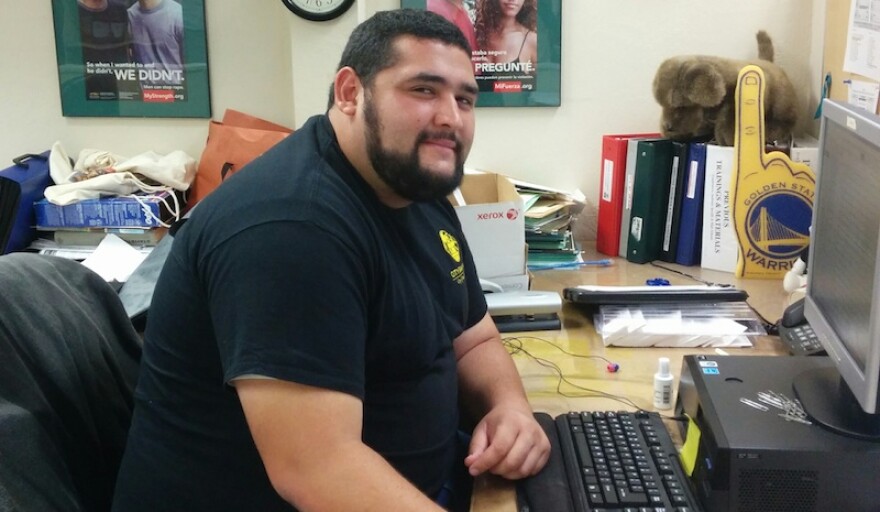When it comes to crimes like rape and sexual assault, the focus is shifting from prosecution and punishment to prevention. That means finding the cause of the problem and tackling it early on.
Some Bay Area schools are doing just that — by talking to their students about healthy masculinity and what it means to be a man. The goal is to raise a different kind of man, one who stands up against sexual violence.
Boys and young men today are surrounded by a lot of different ideas about how a “real man” should treat women. There is, for example, basketball star and family man Steph Curry who recently said this at a press conference:
“I’ve got to start with my wife. I can’t thank you enough for who you are as a person, how you challenge me, how you inspire me every single day.”
There’s also poker player and Instagram star Dan Bilzerian, who brags about going to strip clubs and speaks in demeaning ways to and about women.
Bilzerian and Curry are very different, but they are both straight, successful, young, rich and have beautiful women around them. It can be confusing for young boys to figure out what kind of man they would like be outside of those stereotypes, so sometimes adults need to step in to help them work it out.
Javier Lopez leads discussion groups with high school students through the East Bay nonprofit Community Violence Solutions.He starts by talking about healthy masculinity. He asks them to think about what their own definition of being a man is, what they can do to demonstrate their masculinity, and how they can create their own gender identity.
Lopez believes that certain ideas of what a man “should be” feed into rape culture, an idea that has been getting a lot of attention lately. Lopez says rape culture can be seen in media imagery, but also in how we talk to each other.
“[Like] where we downplay sexual assault, where we downplay violence against women … When young men say things like, ‘Oh, cool story. Make me a sandwich,’ to a young woman, whether they understand it or not, they are perpetuating rape culture.”
Lopez works hard to create a space where the young men can open up. Students tend to be a little shy and wary at first, but snacks can usually get them talking. Lopez says it’s really healthy for them to talk about this stuff because they are used to being so reserved and are trained not to talk about things that make them uncomfortable.
“Things like that — where they feel like they’re automatically the bad guys, so to speak — it brings up a lot of emotions for them,” Lopez says. “Emotions that they are not supposed to talk about.”
Conversations like these are happening even earlier, in sixth grade, at East Bay School for Boys, an all-boys middle school in Berkeley.
“A great part of middle-schoolers’ minds is that they’re still really open-minded and open-hearted,” says Dana Rosenberg, the school’s Director of Curriculum.
Rosenberg also leads the school’s sex-ed classes, where she helps the boys analyze their own assumptions by asking questions about what a stereotypical man is like, and whether boys behave differently around girls than they do amongst themselves.
Rosenberg also has the boys role-play different relationship situations, including imagining what it’s like from a girl’s perspective. They also try out what it is like to be in relationships between two boys or with gender-variant people, and see how different situations might arise. Rosenberg believes acting these scenarios out it is laying the groundwork for future behavior.
“[If] a student is doing that in middle school and they're doing that enough times, then they're building cellular and body memory around empathy and around values … Hopefully that will impact their decision-making, their ability to be more aware of a person that they’re in a relationship with.”
Javier Lopez says he’s starting to see changes in the high school students he works with.
“It’s baby steps. It takes awhile. I am not expecting that a switch is going to go off and they go “Oh, I get it finally!” Lopez says. “It’s going to be a long journey for them, but at the very least they start thinking outside of themselves.”
There is a new generation of boys and young men who are not afraid to find their own definition of what it means to be a man, outside the box of male stereotypes. When it comes to preventing sexual violence, that just might be the way forward.


